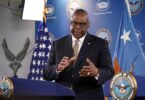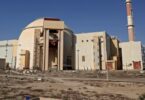ISLAMABAD (INP): Foreign Minister Bilawal Bhutto Zardari has said that Pakistan offers to trade its financial debts for big countries’ climate debts as “We have a climate catastrophe, a natural disaster, a health emergency and food security crisis and potentially extremely difficult economic times to come.”
Bilawal also said that Pakistan would like to hold talks with India but it would only be possible if the neighbouring country reverses its extremist position on Occupied Kashmir status and Islamophobia on Sunday. In an interview with Al Arabiya Television, Bilawal Bhutto said “We like to be in a position to deal with India, to talk with India, to live peacefully with our neighbours, to solve the Kashmir dispute but they can only do so if India walks back its extremist position on Kashmir and Islamophobia.”
He said “Well as the chair of the council of foreign minister of the OIC, we obviously highlighted this topic significantly at our OIC Annual meeting and our Kashmir group meeting on the sidelines of the UN session. I think who has made this issue particularly difficult is the recent unilateral actions by India on August 2019 where they tried to unilaterally and illegally undermined the disputed status of this region and then pushing forward with converting the last area of Muslim majority within their region into minority in their own land. These things are totally unacceptable for us.” Talking about the dire floods in Pakistan, Bilawal said “The situation is really dire right now. The climate catastrophe that we are facing is truly one of the apocalyptic proportions. We all know the story of Noah’s floods that they say it rained for 40 days and 40 nights.
“Well in Pakistan our monster monsoon started in early June and ended in the end of August. By the time, the rain finally stopped a 100-kilometer lake formed in the middle of my country covering a third of my country’s landmass. One in seven people 33 million affected, 16 million of which are children, 600,000 pregnant women now waiting to give birth under the open sky.
This is the compounding tragedy because not only do we have to deal with the initial impacts of flooding, we also staring at potential health crisis with water borne disease spreading at epidemic rates across the affected areas. Then with more than four million acres of standing crop destroyed. We are potentially staring at a food security crisis and to top it all off, we just engaged with our agreement with IMF. We were receiving our payment looking forward to some economic breathing space and obviously the estimates/figures of that deal is based on is now also washed away by the floods. So, we have a climate catastrophe, a natural disaster, a health emergency and food security crisis and potentially extremely difficult economic times to come.
“When asked about the plans for rebuilding, Bilawal said “So as the Secretary General of the United Nations said Pakistan is not only drowning in floodwater but we are also drowning in debts. We would like to be able to when we reach the reconstruction rehabilitation phase to build back better, build back in a greener fashion in a more climate-resilient fashion. In order to so, we need the access to financing and finances to that end.
So, we are not only dealing with our bilateral partners but with international organizations, international financial organizations and engaging with them in a conversation about how going forward. So, we are not going as far to say that you know forgive our debts or something. That’s as extreme as that but we are speaking about a couple of options. First of all, a moratorium on repayments that are due at this very moment. Surely the countries we are indebted to with going forward want their debts repaid and we want to be in a position to be able to do that. We are also talking about supporting us with international financial institutions particularly when it is to do with risk of lending.
“Thirdly, a conversation that the UN Secretary General has been having quite some time is about the debt swap and swapping debt and spending that money instead of paying to the debtor country to spend it. We would like to see sort of a similar formula of debts swaps. We’d focus on greener projects, on greener infrastructure, on climate resilient infrastructure and many of the larger countries have this on their agenda now. So this is a way where those carbon-producing countries, industrialized countries come because Pakistan produces 0.8 percent of the carbon footprint but we are now 10 most climate-stressed countries on the planet. So we sort of like to trade our financial debts for larger countries climate debt and instead of paying them back the current repayments directly to them we could spend that same money directly on green infrastructure project for our reconstruction and rehabilitation. “
About OIC, he said “So, from absolutely at the OIC countries were amongst first to respond to the climate catastrophe in Pakistan in the very initial phases we were in sort of the relief and rescue phase but the Kingdom of Saudi Arabia and United Emirates and many countries within the GCC have stepped up to help Pakistan. At the moment we only launch our flash appeal to do with the immediate needs of rescue and relief going forward when we have conversations about reconstruction and rehabilitation we have a damaged needs assessment completed from the Pakistan. We will re-engage with our partners and work together because surly this is a crisis of global making and its solution has to be global as well.”






